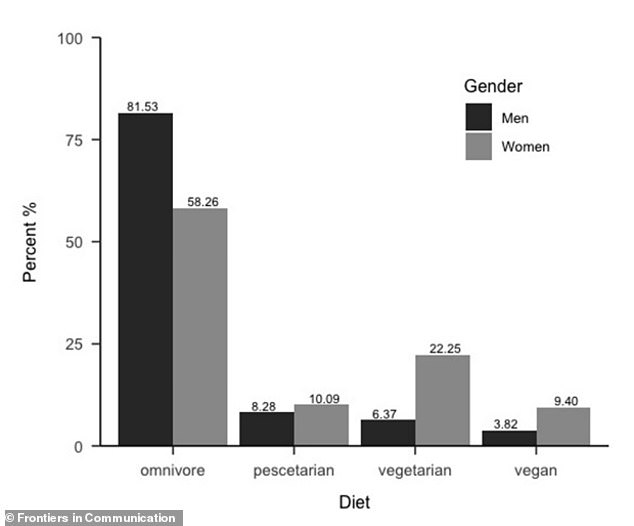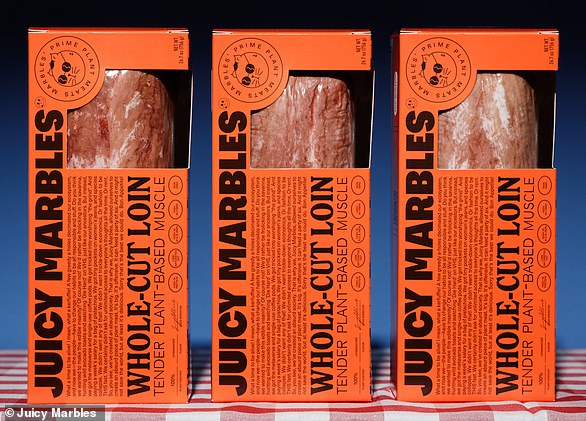Men won’t go vegan because they don’t think it’s MANLY, scientists say
- Men are less likely to be vegan because the diet is not seen as masculine
- But a vegan diet seems less daunting when it uses more red-blooded language
<!–
<!–
<!– <!–
<!–
<!–
<!–
Men are less likely to be vegan than women because the diet is not seen as masculine, a study suggests.
Evidence suggests that men are much less willing than women to give up steaks and barbecues for a trendy vegan diet.
To understand why, researchers asked 539 people to rate four vegan meals on a scale of how suitable they were for men or for women.
The vegan burger, carbonara, goulash and salad were on average seen as more suitable for women to eat than for men.
But the study suggests that a vegan diet could seem less daunting for men if it used more red-blooded language.

Men are less likely to be vegan than women because the diet is not seen as masculine, a study suggests (stock image)
Half of the people in the study were given masculine descriptions of the food, such as a “beast burger” instead of a “wow-factor burger” or a hearty goulash instead of a gourmet burger.
The people-friendly descriptions of the food included the words smoky, fatty and juicy, with the burger and carbonara described as a ‘huge portion’ for ‘even the biggest appetite’.
People who were given masculine descriptions of the vegan meals rated them as less suitable for women than men who were given neutral descriptions such as ‘creamy’ and ‘delicious’.
This suggests that more masculine marketing of vegan foods could make them appear less girly.
But even though people viewed vegan foods as less feminine if they had masculine names and descriptions, they still rated the meals as slightly more suitable for women than for men.
Unfortunately, they also no longer said they wanted to eat the vegan meal, were willing to try it, or thought it would taste good.
Alma Scholz, who led the research at the University of Würzburg but is now at Stockholm University, said: ‘Men may be less inclined to consume vegan food due to the need to appear masculine.
“If we described this food in a more masculine way, we might make men more willing to eat it.”


Figures show that only 3.82 percent of men are vegan, while almost one in ten (9.4 percent) women now follow the diet
The study, published in the journal Frontiers in Communication, asked people to rate the suitability of vegan food for men or women on a scale from one to seven.
A score of four meant it was not particularly suitable for either gender, a higher score meant it was more suitable for men and a score below four meant it was more suitable for women.
When a citizen was described in neutral words to half of the volunteers, the average rating was 3.68.
But its rating rose to 3.98 from people to whom it was described using more masculine words – meaning it was almost seen as a meal equally suitable for both men and women.
Men seem very sensitive to whether food can make them look less of a man, based on the research results.
Women’s assessments of whether vegan food is more suitable for men or women did not change significantly when male descriptors were used – but men’s did.
The study authors note that meat is culturally associated with strength and masculinity, which could make a vegan diet a hard sell.

